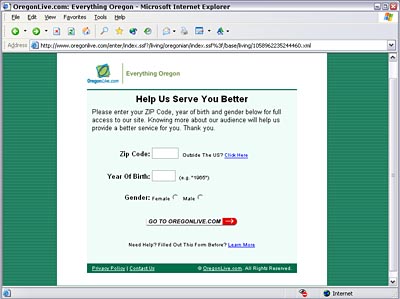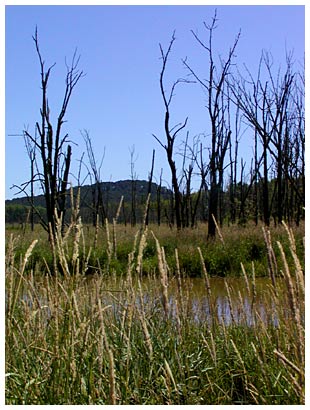Matt notes that Amazon has
embraced RSS syndication of its catalog. Matt also posted an
example feed that lists books about weblogs. This is a great illustration of why Web Services are important.
Speed is key
To implement this new feature in the world before they had Web Services, a company like Amazon would have to focus some developers on putting together the RSS. This would involve special code to get the results from their database and "hard coding" those results as RSS. Any change in use would probably require new code, more developer time, etc. In the world with Amazon Web Services (AWS) though, they already have output in an XML format and a mechanism for transforming that XML (XSLT). All they needed to do to implement this feature was write
a stylesheet to transform AWS responses into RSS. Instead of writing new code to accomplish a specific task, they can simply write a new stylesheet to fit their new task. And the stylesheet will work for almost all of the AWS methods available (Author Search, Director Search, Keyword Search, Category Listing [aka. Browse Node]...on and on). With a single stylesheet they've opened up their catalog to the thousands of people using RSS newsreaders.
So, how does it work? Check out the monster URL for the sample feed Matt posted:
The URL is just a standard public AWS query with a slight change. Instead of the normal
f=xml in the URL, it's
f=http://xml.amazon.com/xsl/xml-rss091.xsl. This tells AWS to use Amazon's RSS stylesheet to transform the results before sending them back. And once you see that it's using their standard AWS queries, you can use that to your advantage.
What's in it for me?
If you want to offer specific Amazon product feeds, and you want to get a kickback (ok,
affiliate fee) when someone clicks the link through their newsreader and buys a product—just tweak this URL. Change
t=webservices-20 to
t=[your associates tag] and
dev-t=amznRss to
dev-t=[your developer key]. That's it! Nothing to install on your server, no code to write. The only work you have to do is encouraging people to add
your URL with
your variables to their newsreader. This economic incentive is how Amazon encourages people to use their system, and I'm amazed more companies aren't doing it.
As Matt pointed out, Amazon will make money with RSS. And thanks to their open platform—there's no reason you can't make some money too.







